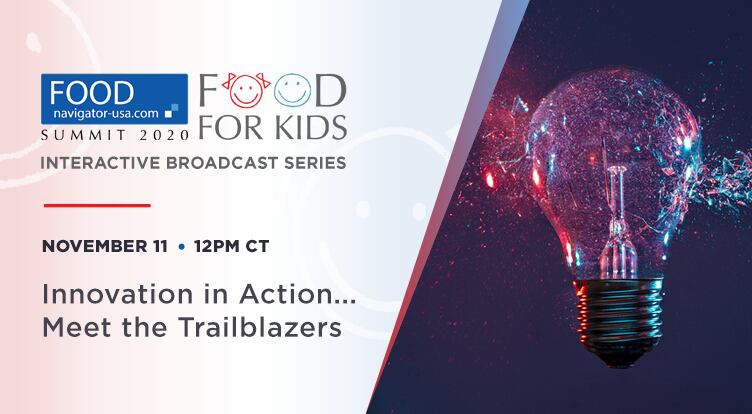FARE received $2m to launch the study (exploring peanut, egg, dairy, cashew, soy, almond, and sesame), which will be conducted in partnership with Northwestern University Feinberg School of Medicine, Ann & Robert H. Lurie Children’s Hospital of Chicago, Children's Hospital Colorado, Massachusetts General Hospital, and University of Chicago Medicine.
"The possibility that all food allergies might be preventable has been the great hope of those in the food allergy field," said Peter Kolchinsky, PhD, who, with his wife Anna, established a $2m matching grant fund for SEED.
"The SEED study stands to forever change the way parents are guided by physicians and food companies to feed their children, bending the curve on what's been a growing yet surprisingly silent pandemic of anxiety."
Recruiting a diverse group of infants
The SEED study is intended to pick up where the 2015 LEAP study left off, which found that early introduction of peanuts could significantly reduce the development of peanut allergies in infants with severe eczema and/or egg allergy, and whose findings were later incorporated into National Institute of Allergy and Infectious Diseases (NIAID) and American Academy of Pediatrics' guidelines to encourage early peanut introduction for infants at higher risk of peanut allergy.
"When those guidelines were made we could only talk about guidelines for peanuts because that was where the definitive data was, but most kids have multiple food allergies," said the SEED study’s principal investigator, Ruchi Gupta, MD, MPH, a professor at Northwestern University Feinberg School of Medicine and a clinical attending at Ann & Robert H. Lurie Children’s Hospital of Chicago.
"It's very important that we understand and reduce the incidence of some of the other top food allergens through early introduction as well."
Once recruitment of 2,000 infants (1,000 intervention and 1,000 control) begins in early 2021, researchers aim to complete the study within 18 months to two years, but "definitely before the next dietary guidelines [in 2025]," Dr. Ruchi told FoodNavigator-USA, adding that it is the goal of FARE and researchers to incorporate their findings into the next set of dietary guidelines for infants.
"The other big thing we’re adding with this study is a diverse group. In the LEAP study, which was done in London, it was not a very diverse group racially, ethnically, and socio-economically. So it’s really important to us to test this in a more diverse population as well," added Dr. Gupta.
'It is quite complex, but it is doable'
The study will be a considerable undertaking given that researchers will be investigating the effects of early introduction of not one, but seven, food allergens.
"It is quite complex, but it is doable," said Dr. Ruchi.
"We are working with the top dieticians to make sure that we follow the current dietary guidelines for infants around nutritional intake and caloric intake, as well as make sure they get enough protein."
Dr. Ruchi explained that parents of infants in the control group will be first introduced to four food allergens initially -- peanut, eggs, milk, and cashew -- with the other three allergens (soy, almond, and sesame) introduced into the infant's diet later.
"What we’re anticipating is once an infant is ready to eat [solid foods], we will start with those top foods, and those will probably be every other day foods. And once they ahve tried them all and not had a reaction, then they can start combining those other foods," said Dr. Ruchi.
The main reason behind the phased introduction is participant compliance, a stumbling block for researchers in past studies, she noted.
"We want to make sure this is as easy for the parents as possible. We are going to be shipping them the foods and keeping in regular contact with them to make sure it is happening," said Dr. Ruchi.
Researchers conducting the SEED study will also give parents the convenience of choice when it comes to product formats.
"Each one will be in a powder format, but we will have others. Every food will have three choices (e.g. powder, spread, puff formats). As they get older we’ll change those recipes."
'It's very scary for parents'
Approximately one in thirteen children have at least one food allergy, according to FARE. And according to The Centers for Disease Control & Prevention, between 1997-1999 and 2009- 2011, food allergy prevalence among children increased by 50%.
Many parents as a result are battling the fear and anxiety that comes with the increasingly common occurrence of food allergies among kids, noted Dr. Ruchi.
"It’s very scary for parents," she said, noting how 30% of US pediatricians report fully following updated peanut introduction guidelines, according to a recent survey in JAMA Network Open.
Therefore, the importance of FARE's consumer-friendly communication and resources will play a central role in dispelling parents' fear around introducing common food allergens into their infant's diet.
FARE is making a huge push into consumer education with the launch of Baby's First, a consumer-friendly website addressing many of the questions parents have around early allergen introduction.
"Secondarily, we are doing a very extensive push into social media and as well to pediatricians to ensure that we’re going directly to moms," Lisa Gable, chief executive officer of FARE, told this publication.
Part of FARE's consumer-friendly social media strategy includes collaborating with K-Pop star, Lydia Soo Paek Wilkins, who is introduce her infant to food allergens in real-time through her Instagram.
"FARE's #1 goal is to reduce and mitigate the risk of food allergies for kids and for adults. And we believe this study could have a significant effect in bringing down the rise of food allergies and really turn the curve," said Gable.
Hear from one of the FOOD FOR KIDS 2020 Trailblazers, Mission MightyMe, whose founders are addressing the growing early allergen introduction market.


